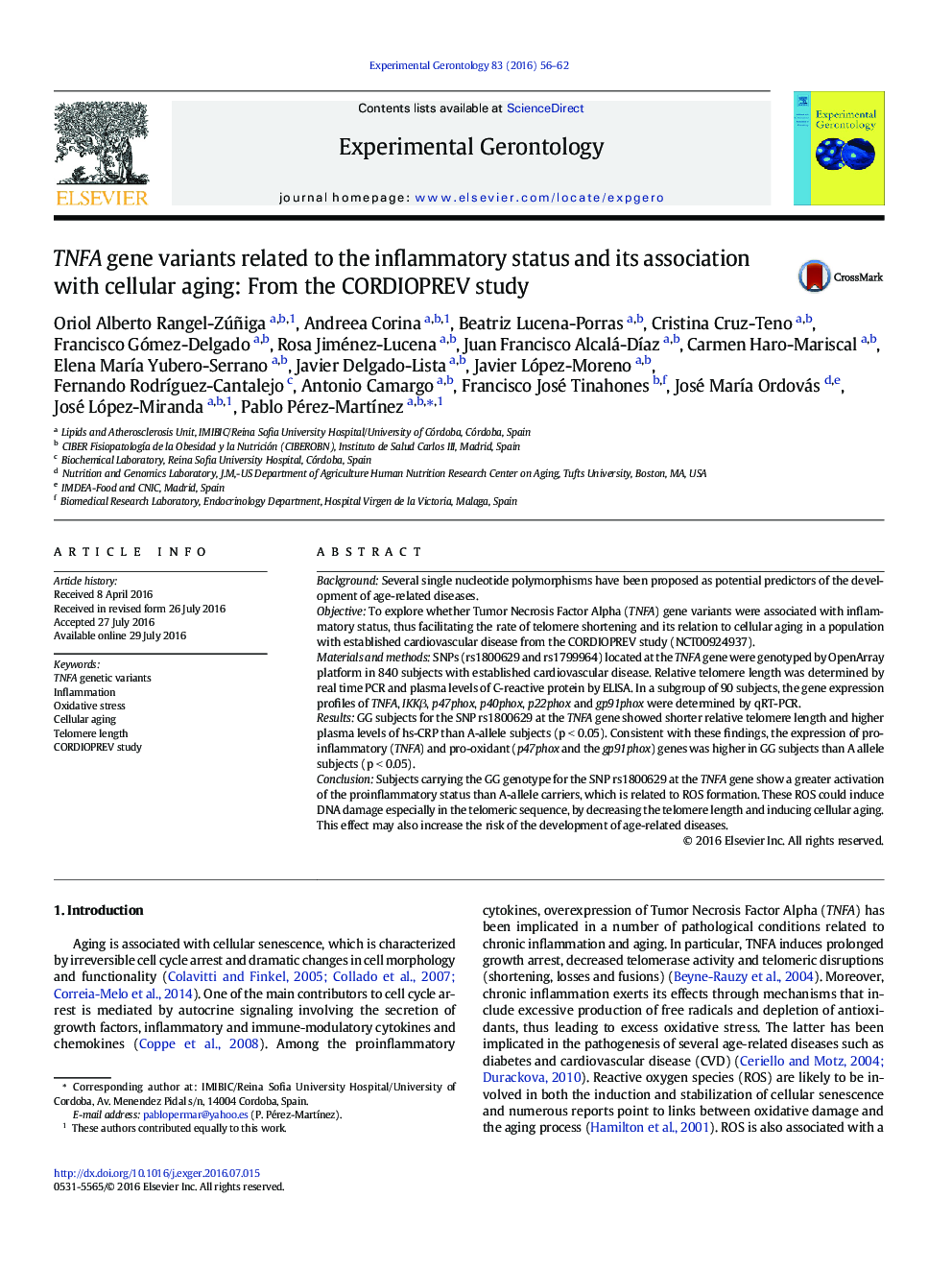| Article ID | Journal | Published Year | Pages | File Type |
|---|---|---|---|---|
| 1906091 | Experimental Gerontology | 2016 | 7 Pages |
•TNFA gene variants and cellular aging are linked by oxidative stress-mediated telomere-attrition.•TNFA gene variants modulate the inflammatory status and its association with cellular aging.•Results support the implication of inflammation-related genes in cellular aging.•TNFA gene variants influence telomere length and plasma levels of hs-CRP.
BackgroundSeveral single nucleotide polymorphisms have been proposed as potential predictors of the development of age-related diseases.ObjectiveTo explore whether Tumor Necrosis Factor Alpha (TNFA) gene variants were associated with inflammatory status, thus facilitating the rate of telomere shortening and its relation to cellular aging in a population with established cardiovascular disease from the CORDIOPREV study (NCT00924937).Materials and methodsSNPs (rs1800629 and rs1799964) located at the TNFA gene were genotyped by OpenArray platform in 840 subjects with established cardiovascular disease. Relative telomere length was determined by real time PCR and plasma levels of C-reactive protein by ELISA. In a subgroup of 90 subjects, the gene expression profiles of TNFA, IKKβ, p47phox, p40phox, p22phox and gp91phox were determined by qRT-PCR.ResultsGG subjects for the SNP rs1800629 at the TNFA gene showed shorter relative telomere length and higher plasma levels of hs-CRP than A-allele subjects (p < 0.05). Consistent with these findings, the expression of pro-inflammatory (TNFA) and pro-oxidant (p47phox and the gp91phox) genes was higher in GG subjects than A allele subjects (p < 0.05).ConclusionSubjects carrying the GG genotype for the SNP rs1800629 at the TNFA gene show a greater activation of the proinflammatory status than A-allele carriers, which is related to ROS formation. These ROS could induce DNA damage especially in the telomeric sequence, by decreasing the telomere length and inducing cellular aging. This effect may also increase the risk of the development of age-related diseases.
